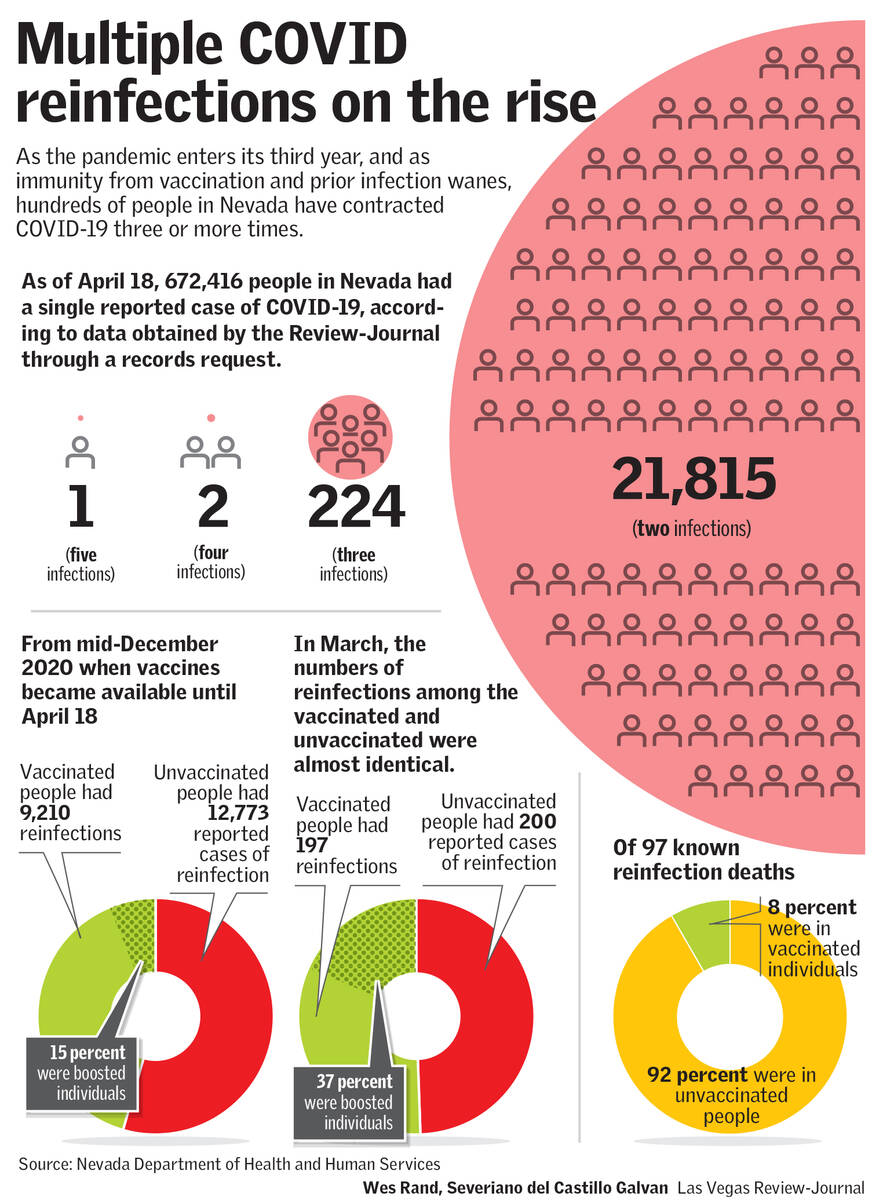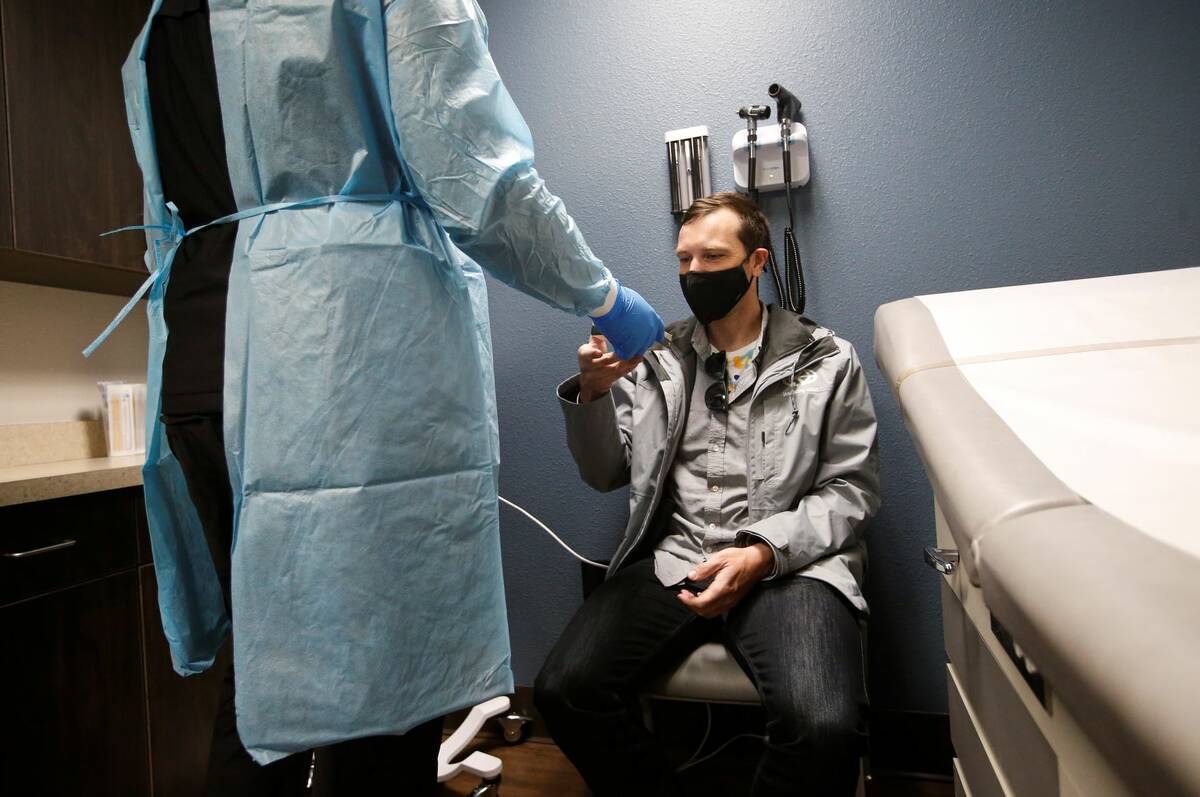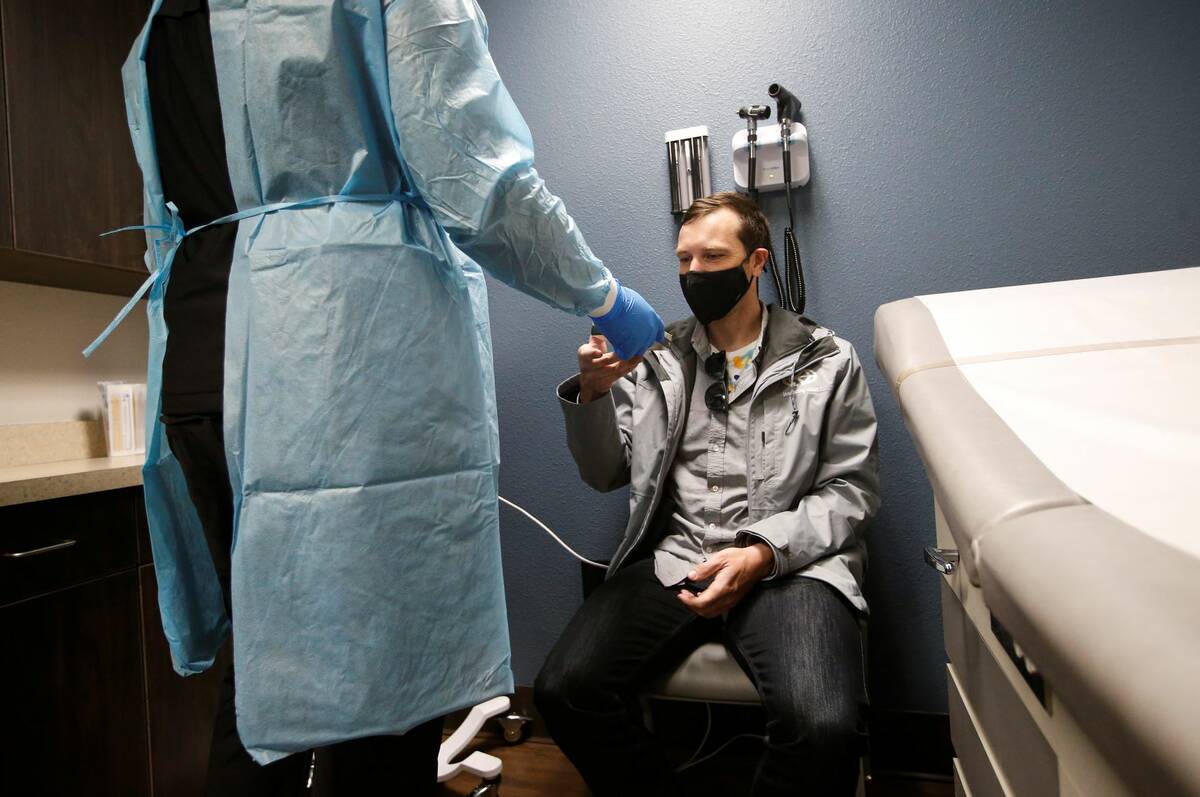COVID reinfections on rise, with 1 Nevadan contracting the virus 5 times
One person in Nevada has contracted COVID-19 five times, while hundreds of others have been infected with the virus at least three times, according to new data from the Nevada Department of Health and Human Services.
Reinfections remain relatively uncommon, accounting for about 9 percent of cases reported across the state in March. However, reinfection is becoming more common as the pandemic wages on, as immunity wanes from prior infection and vaccination and as the virus mutates in ways that make it less recognizable to the immune system, state health officials said.
State epidemiologist Melissa-Peek Bullock drew a parallel between becoming reinfected with COVID-19 twice during the course of the pandemic and contracting the flu two winters in a row.
Immunity to influenza derived from an infection or a flu shot one winter will have waned by the next winter, she said. What’s more, the flu virus will have mutated over the course of a year in ways that increase its ability to evade the immune response.
The same holds true for the coronavirus. “We wouldn’t expect COVID to behave differently,” Peek-Bullock said.
As of April 18, 672,416 people in Nevada had a single reported case of COVID-19, according to data obtained by the Review-Journal through a records request. Another 21,815 people had two reported infections. The number of people with three infections drops off sharply to 224. Only two had four infections, and a single individual had five reported infections.
The number of both reinfections and infections are actually higher, since the results of rapid tests done at home aren’t reported to the state, officials said.
A case is considered a reinfection when a person who has tested positive for COVID-19 and recovered tests positive again at least 90 days after the original test. A case may also be considered a reinfection when sequencing, a process of genetic analysis done in a laboratory, determines that a person is infected with a different strain than the original infection, even if the infections were closer together.

Data specifics
The state’s data, however, includes only reinfections that occurred at least 90 days apart.
Cases may even be years apart at this point in the pandemic, and many will involve different variants or strains of the virus, said state biostatistician Kyra Morgan.
State officials did not provide any details about the health status of the individuals who had tested positive three or more times, such as whether they had compromised immune systems or were vaccinated.
“Nationally, and globally, it’s really unclear what the specific risk factors are that cause people to become reinfected multiple times,” Peek-Bullock said.
However, Morgan said that people who have had multiple COVID-19 infections are likely at high risk of exposure to the virus as a result of their behavior, work setting or congregate living environment.
The state officials stressed that getting vaccinated and boosted help to prevent against reinfection, as they do against an original infection.
From mid-December 2020 when vaccines became available until April 18, unvaccinated people had 12,773 reported cases of reinfection. Vaccinated people had 9,210 reinfections; of these, only 1,406, or 15 percent, were in boosted individuals.
In March, the numbers of reinfections among the vaccinated and unvaccinated were almost identical. Vaccinated people had 197 reinfections compared with 200 among unvaccinated people. Of reinfections among vaccinated people, 73, or 37 percent, were in boosted individuals.
Of 97 known deaths related to reinfection, 89, or 92 percent, were in unvaccinated people. Eight, or 8 percent, were in vaccinated individuals. There were none in people who had received a booster shot.
Morgan said that cases of reinfection tend to be milder than original infections, likely due in part to a level of ongoing immunity. In addition, the omicron variant that triggered a wave of disease this winter typically resulted in less severe illness than earlier variants such as delta.
Contact Mary Hynes at mhynes@reviewjournal.com or 702-383-0336. Follow @MaryHynes1 on Twitter.








































